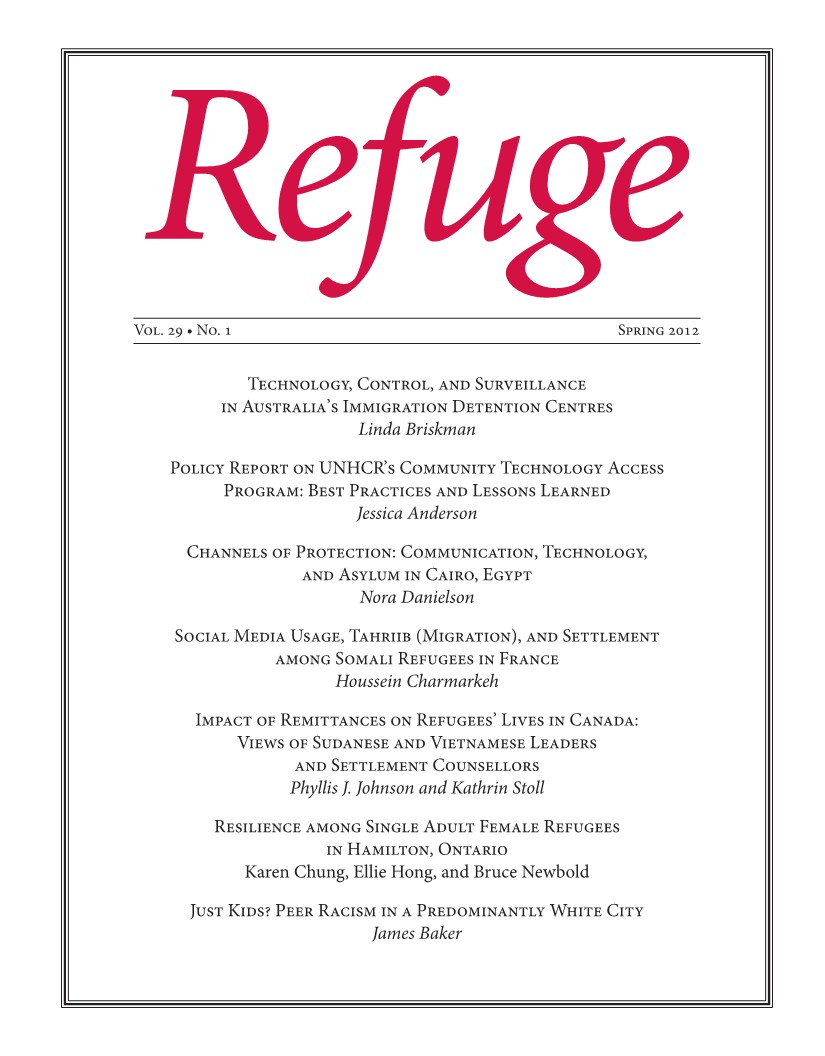Ancient Laws and New Canadian Refugee Legislation: Evaluating Bill C-31 in Light of the Book of Deuteronomy
DOI:
https://doi.org/10.25071/1920-7336.37511Keywords:
Canada, Bill C-31, Protecting Canada's Immigration System Act, Deuteronomy, scripture, irregular arrivals, refugees, strangers, ethics, justiceAbstract
Some important innovations within Bill C-31, Protecting Canada’s Immigration System Act, run contrary to the biblical ethics espoused in the book of Deuteronomy, from the Judeo-Christian scriptures. Components of Bill C-31—such as mandatory detention, no right of appeal, and a five-year delay for application for permanent residence (all these apply to only certain groups of claimants)—are challenged by the ethics, system of justice, and polity of Deuteronomy. In Deuteronomy, the Hebrew word “ger” (“stranger”) occurs twenty-one times, indicating the importance of ethics concerning the stranger for this book. Townships and families in Israel have the responsibility to include the stranger in their agricultural, ritual, and cultural lives. Deuteronomy’s ethic towards the stranger is embedded in Israel’s own history of being a “stranger” or “refugee.”
Metrics
Downloads
Published
How to Cite
Issue
Section
License
Copyright (c) 2013 Mark Glanville

This work is licensed under a Creative Commons Attribution-NonCommercial 4.0 International License.
Refuge authors retain the copyright over their work, and license it to the general public under the Creative Commons Attribution-Non Commercial License International (CC BY-NC 4.0). This license allows for non-commercial use, reproduction and adaption of the material in any medium or format, with proper attribution. For general information on Creative Commons licences, visit the Creative Commons site. For the CC BY-NC 4.0 license, review the human readable summary.







